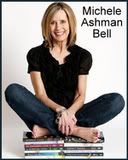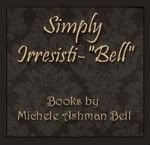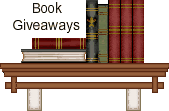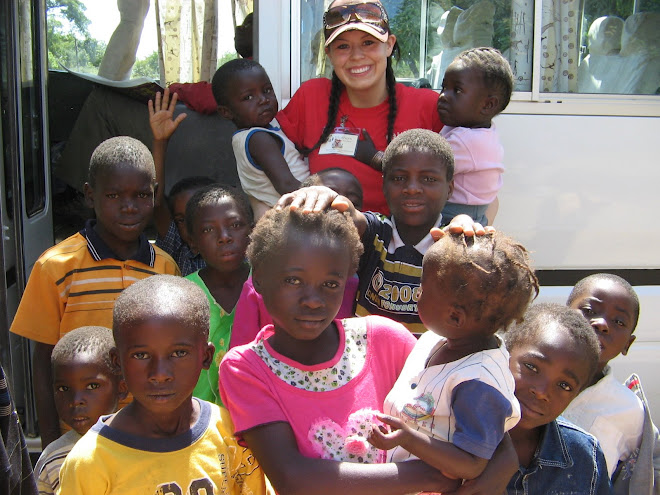
I've enjoyed getting to know Laurie during this interview and thought you'd be interested in learning more about her.
Here are some excerpts from her bio:
"I suppose I was a dreamer as a child, always imagining places more fascinating and mysterious than the small town in Carroll County, Maryland where I grew up. I either had an old soul or I was weird because on a sixth grade writing assignment, while other girls were writing poems about the Jackson Five and Donnie Osmond, I penciled a deep, introspective ode entitled “Time”, my first published work, (which still hangs on my mother’s hallway, appropriately matted in black). A few years later I won a high school creative writing contest and I began to see myself as a writer. (Parents, never discount the importance of these little benchmark moments.)
"I also loved acting and singing and playing colorful characters with accents. (That came in handy when I met my husband over a CB radio while faking an English accent. . . But I digress. . .) Tom and I married in 1976 and began our family—three boys and “Amanda” as my husband puts it, though Tom, Adam and Josh might prefer equal billing.
"In the spring of 2004 on my grandson Tommy’s six-month birthday, my first book, UNSPOKEN was published. After five years of research and rewrites, I developed the historical fiction series called Free Men and Dreamers. Volume one, released in February of 2007 under my initials, LC Lewis, is entitled DARK SKY AT DAWN. Volume two, TWILIGHT'S LAST GLEAMING, was released in May 2008. Volume three, DAWN'S EARLY LIGHT, was released in November 2009.
"This project has been a spiritual and patriotic journey for me, helping me to appreciate the frailties and fortitude of this singular generation. These were the children of the Founding Fathers, the first American-born generation, charged to build a nation upon the framework they inherited.
"We live in a rapidly changing world that creates more questions than answers it seems. To borrow a line from Dark Sky at Dawn, “. . . knowing what to keep and what to abandon will be the challenge of the next generation.” I’m exploring that. I hope you’ll join me on the journey."

Backliner from Free Men and Dreamers
In the spring of 1814, a temporary calm settles along the Patuxent. While the British Navy skulks in the Chesapeake Bay, the Willows' families and their neighbors enjoy a brief season of peace.
That is until Napoleon is subdued.
Britain's navy re-enters the Patuxent, prepared to loose her triumphant European conquerors on America, even as peace negotiations commence in Belgium.
But weeks of relentless British attacks along the waterfront soften the will of the American militia and citizenry, leaving the voracious British military confident that victory is within their grasp. And their primary target? Washington D.C.!
While attentions turn to the defense of the Capital, Sebastian Dupree and his band of mercenaries strike the Willows. Not everyone survives, despite former enemies becoming allies, with the Willows' freed slaves to defend their homes and families.
Mere miles away, the Capital lies in peril, its defense now resting primarily upon citizen soldiers like Jed Pearson, and a most unlikely Naval force--Commodore Joshua Barney's rag-tag fleet of barges called the Chesapeake Flotilla--and the courage of Markus O'Malley and the men who built it.
But Britain's house is also divided over the war, and as the cost mounts in blood and money, rifts widen in her families and government, wearying the mind of the Earl Of Whittingham, and threatening to destroy Arthur Ramsey.
Experience the pain and passion of five families--American, slave and British--as they endure three of the darkest days in American history--the week Washington burned!
With impeccable research and attention to detail Laurie C. Lewis weaves history and fiction together into a wonderful story of courage, faith and honor. Lewis has written a remarkable series set against the background of the War of 1812. Many characters are the firstborn American generation--children of the Founding Fathers; the generation who received the Restoration of the gospel of Jesus Christ.
In her first two books Lewis introduces us to Jed and Hannah and we follow their courtship, hoping that Hannah will choose Jed in spite of her parents’ disapproval. Throughout these powerful volumes Ms. Lewis vividly recaptures the incidents that were shaping not only Jed and Hannah’s destinies, but also the destiny of this young country. In the third volume, Dawn’s Early Light, the story of Jed Pearson continues as he prepares for the British invasion up the Potomac and Patuxent rivers, on their way to burn the Capital. But before Jed can answer the call to serve his country again he makes sure that his wife and sister, and, an estate full of newly freed slaves, are secure. The book is filled with brilliant characters but I particularly connected with Hannah and I could clearly understand what it must have been like to live during this time of turmoil when these events in history took place.
Laurie is an incredible writer. Her story is complex, meaningful and inspiring. I felt I was seeing events in history unfold before my eyes and was able to relearn them in a way that gave them significance and meaning.
Here is my interview with Laurie:
M.B.: When did you first know you wanted to be an author?
Laurie: I always loved to write and I entered every writing contest I could find. I also loved to sing, and that took precedence for a number of years, but I always came back to writing. There are so many similarities between the two—ways to express all that emotion bubbling inside us.
M.B.: What was the pathway like for you to get your first book published?
Laurie: I loved the type of books Covenant was publishing, and my first novel, Unspoken, seemed to fit their style, but getting up the courage to submit was the hardest part of my journey. I was visiting my daughter at Utah State when the call came through telling me it had been accepted. I screamed across the apartment complex! But the first real hurdle was the sense of failure when I saw it returned for changes and covered in red ink. I realized then that I was a pretty good storyteller, but my editing skills needed significant improvement.
M.B.: Were you ever discouraged along the way? If so, how did you deal with it?
Laurie: I’ve had significant professional disappointments. Dark Sky at Dawn, volume one of my Free Men and Dreamers series, is the result of having another manuscript turned down. And two of my very favorite manuscripts have yet to find a home. But by far, my biggest disappointment was having volume three of my Free Men and Dreamers series dropped. I had spent two years researching it, and over a year writing it. I knew it would be an important book, but since sales were down on book two, Covenant didn’t want to take a chance on a third book. Despite any previous success I had enjoyed, I felt like a failure. I set it aside and walked away from it for a while. For me, (and I don’t think I’m atypical) one rejection will dilute a hundred positive letters and reviews. In time, I was able to shift my thinking from that defeated attitude to, “What options are left me?” Letters from readers buoyed me up and I finally decided to finish the series and publish book three myself.
M.B.: What is your writing schedule like?
Laurie: It’s pretty manic. I usually take off a few months while I market my current release, then I jump back in and write and research ferociously. I try to write about four pages a day if it’s descriptive, and ten pages if it’s narrative, but two out of five days are primarily research.
M.B.: Where do your ideas come from? How do you know the idea is
good enough to write a book about it?
Laurie: Sometimes I find a thread of obscure history or a great historical figure that inspires me. Twilight’s Last Gleaming developed from an account of a Baltimore riot. Dawn’s Early Light, my new release, is filled with history I had either never heard or never listened to, but this go round, I was riveted. For an idea to capture my attention, tt has to touch me deeply. I see it as a movie, and if I can feel the suspense, the tension, the passion of the storyline, I invest some time in it and see if I can capture those images in words.
M.B.: What words of advice do you have for other writers who desire to
have their manuscripts become books in print?
Laurie: Improve your technical and editing skills so you don’t shoot yourself in the foot. Find a skilled critique partner who will give you honest feedback along the way, and develop alligator skin, because some feedback hurts. Most of all, I would say, “just write.” Do your best to realize your goal of being published, but even if your stories are never read by anyone but those close to you, there is something intensely satisfying and therapeutic in writing. We all have stories to tell. What a shame to squelch them because they might not be published.
M.B.: What is your process of brainstorming a story? Do you just sit
down and write, waiting to see what happens next? Or do you outline
first?
Laurie: I use several tools—a story outline before I begin, and then I maintain a running timeline and chapter summary outline so I can quickly look back and see where all my characters are in a given chapter. If I am writing a historical piece, I outline the history first, then I write in my fictional story ideas within that framework. It’s tedious at first, but it keeps the history accurate.
M.B.: Do you ever experience a snag in a story, a form of writer's
block? If so, how do you deal with it?
Laurie: These are great questions. I do, and it’s dreadful. Or sometimes I’ll discover that a thread isn’t plausible or interesting, so I need a new direction or a brilliant new thread. I have a science background, so I logic my way through my mental blocks. I’ll pose a variety of possibilities and follow each one until something “feels” right. Then I go with my gut.
M.B.: Do you need absolute quiet to write? Do you listen to music when
you are writing?
Laurie: I love to listen to music when I write. What I put on is determined by what sort of scene I’m writing. The music pulls on my emotions, and that makes my writing richer. I also think good writing had a meter of its own . . . like music. When I read a paragraph back, I listen to see how it flows. I think good sentence flow helps a reader feel the tension or action in the story.
M.B.: What kinds of inspiration do you use during your story creation periods?
Laurie: Currently my inspiration has come from historical sources. I’ve been reading a lot about the Founding Fathers, the Constitution, the War of 1812 of course, and bios of people in these time frames. I’ve also read a wide variety of material on Joseph Smith and his family. They were the most researched and recorded rustic family of their day, and their lives were remarkable, even from an historic point of view.
M.B.: Who has made the greatest difference for you as a writer?
Laurie: Probably a high school creative writing teacher who thought I showed promise. Her praise and interest in me helped me believe this was an area worth exploring. I hope teachers and parents realize how much their honest praise can inspire a budding talent.
M.B.: Do you use a critique group during the writing process? Why or why not?
Laurie: I haven’t actually used one yet. Living in Maryland, I’m rather isolated from most of my writing peers, and I need a certain level of closeness and trust before I can lay myself out there. But I clearly see the value in having someone critique your work whose opinions you trust, and I am now a member of two critique groups.
M.B.: Which of your books is your favorite, and why?
Laurie: I think Twilight’s Last Gleaming is my personal favorite because I invested a considerable amount of time walking over the places where that story took place. I stood on the shores of Hampton, Virginia at the spot where the British landed the forces that ravaged the citizens of that town, and when I wrote those chapters, all those images were with me.
M.B.: Any final words you would like to share
Laurie: Thanks so much for this opportunity, Michelle! These were great questions and I really had to do some soul-searching on several. I hope any of your readers who enjoy historical fiction will pick up one of my books and let me know how they liked it.
M.B.: Where can our readers go to find your books and order them?
Laurie: Seagull Books and Tapes carry all three current volumes of Free Men and Dreamers
www.laurielclewis.com
www.laurielclewis.blogspot.com
Readers: leave your comments in the trail for this post and be entered in a drawing to receive a free copy of this book, as well as a chance to win this beautiful necklace, compliments of L. C. Lewis.




























































-page-001.jpg)














4 comments:
Laurie sounds like a very thoughtful thorough writer. I enjoyed reading your interview, Michele, as always. Good luck, Laurie!
This is a wonderful interview. This is one of the book series on my to-purchase list. Can't wait to read them. Thanks, Michele!
I'm reading her book now!
Great interview.
What a great review. I would love to read Laurie's book:)
The area in which Laurie grew up is one of my very favorites to visit. It is so full of rich history.
I love the line from Dark sky at Dawn, “. . . knowing what to keep and what to abandon will be the challenge of the next generation.”
I too am going to take on the challenge:)
Laurie, good luck in all your gifted pursuits.
Thanks for sharing her interview!
~♥
Post a Comment